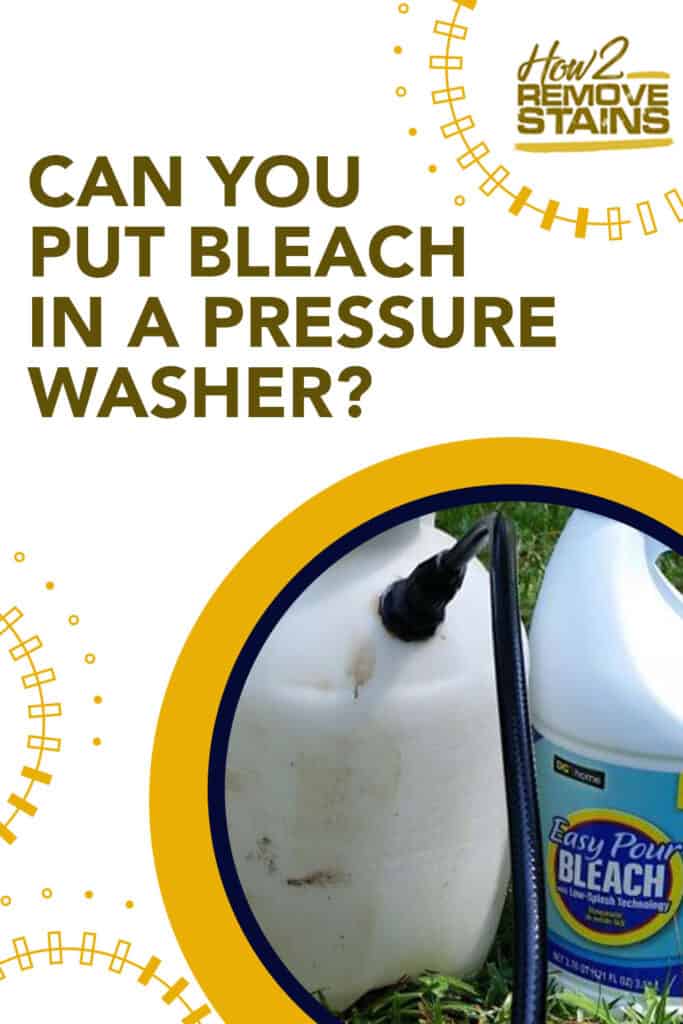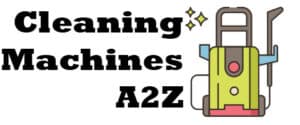Pressure washers are known for making cleaning jobs incredibly easy. However, there is a bit of a learning curve to work with when you are first getting used to your pressure washer. This includes knowing what kinds of cleaners to put into it.
Is it OK to put bleach in a pressure washer?
As useful as bleach can be for cleaning, you should never, ever put bleach into a pressure washer. Bleach will wreak havoc on your pressure washer, damaging the internal mechanisms of it and requiring that you will have to buy replacement parts (or even to replace the whole thing).
It is also incredibly dangerous for your health.
The Problem with Bleach
There are two main areas where bleach becomes a major concern when it is put into a pressure washer. First is going to be the damage that it causes to your equipment. Pressure washers aren’t inexpensive, with the lower-end models still coming in at a few hundred dollars and with the high-end models easily breaching the thousands. Nobody wants to cause unnecessary damage to their pressure washers and have to replace the parts within them.
Bleach is well-known to be a corrosive substance. This is how it is so effective at cleaning surfaces that are able to handle bleach, as the bleach will quite literally dissolve the grime or mold on top of the surface. Unfortunately, when you put that into a pressure washer, this means that the bleach will begin corroding the internal parts of the washer as well, which is not what you want to have happen.
Bleach is damaging the inside of your pressure washer
Bleach is most damaging to the pump seals inside the pressure washer. These are the seals that lead both to and away from the pump that carries the water inside the pressure washer. When these seals become corroded and damaged, it can immediately render your pressure washer nonfunctioning. If only a small amount of bleach was used by mistake, it may leave the pressure washer salvageable, but it is not worth betting on this possibility.
Replacing the pumps of a pressure washer can be expensive and somewhat difficult if you do not know what you are doing on a mechanical level. If you choose to leave the repairs of the pressure washer in the hands of an expert, this is only going to cost you more money for a mistake that could have been easily avoided if you had simply chosen not to use bleach inside the pressure washer.
Using bleach in a pressure washer migth also be bad for your health
The second point to consider is that it will be damaging to your health as well, and in many cases, the health of your plants and anyone else who is near the pressure washer. This is because when the bleach is mixed into the water inside the water pump, both the high motion and the heat of the environment inside the pressure washer will aerosolize the bleach, meaning that when you pull the trigger on the wand, you are releasing bleach particles into the air.
Bleach is not a substance that should be ingested in any capacity, including inhalation, as it can cause severe corrosive damage to your lungs. There is no way of knowing where the aerosolized bleach will go when it leaves your pressure washer, meaning that anything and everything on your property is then at risk. This can include a garden that you have worked hard on, your car that you spent a lot of money on, and to the wildlife surrounding your home.
There are many alternatives to using bleach, especially when relying on pressure washing. This is because the process of pressure washing creates enough pressure through the water jet that you can remove just about any stain if you take your time. This means that the extreme nature of bleach is no longer a necessity to have a fully restored part of your property, so you do not even have to worry about the possibility of it.
Other articles that you might find useful about pressure washers:
- How to make your own detergent for your pressure washer
- How to maintain an electric pressure washer
- What to spay on concrete before you pressure wash
More about cleaning with bleach and a pressure washer
What If Bleach Is a Necessity?
If you are in a situation where you need to use bleach to prepare an area for pressure cleaning, you should apply the bleach to a brush or a sponge that can easily handle bleach’s corrosive nature. Then, you would “paint” or scrub the area that needs to be bleached with the bleach brush. You will then wait a few minutes for the bleach to sit and do its job before you bring out the pressure washer, using a soap that is safe for your property instead of bleach.
What Other Cleaners Are There?
There are other oxidizers that you can use, but the one that will work best for your situation is going to be dependent on what you are cleaning. It can be helpful to do some research on what you are cleaning and what cleaners are going to be the most effective to get the job done. In a case where you are using diluted bleach, you could get away with this as long as you are careful with your mixing.
Can You Dilute Bleach?
Many professionals who handle pressure washers will actually use bleach, but they go to great lengths to properly dilute the bleach to meet their intended purposes. Again, you may need to do some follow-up research on how much you should be diluting the bleach, as it varies between different companies that produce bleach, different pressure washers and their sensitivities, and what you are trying to clean.

